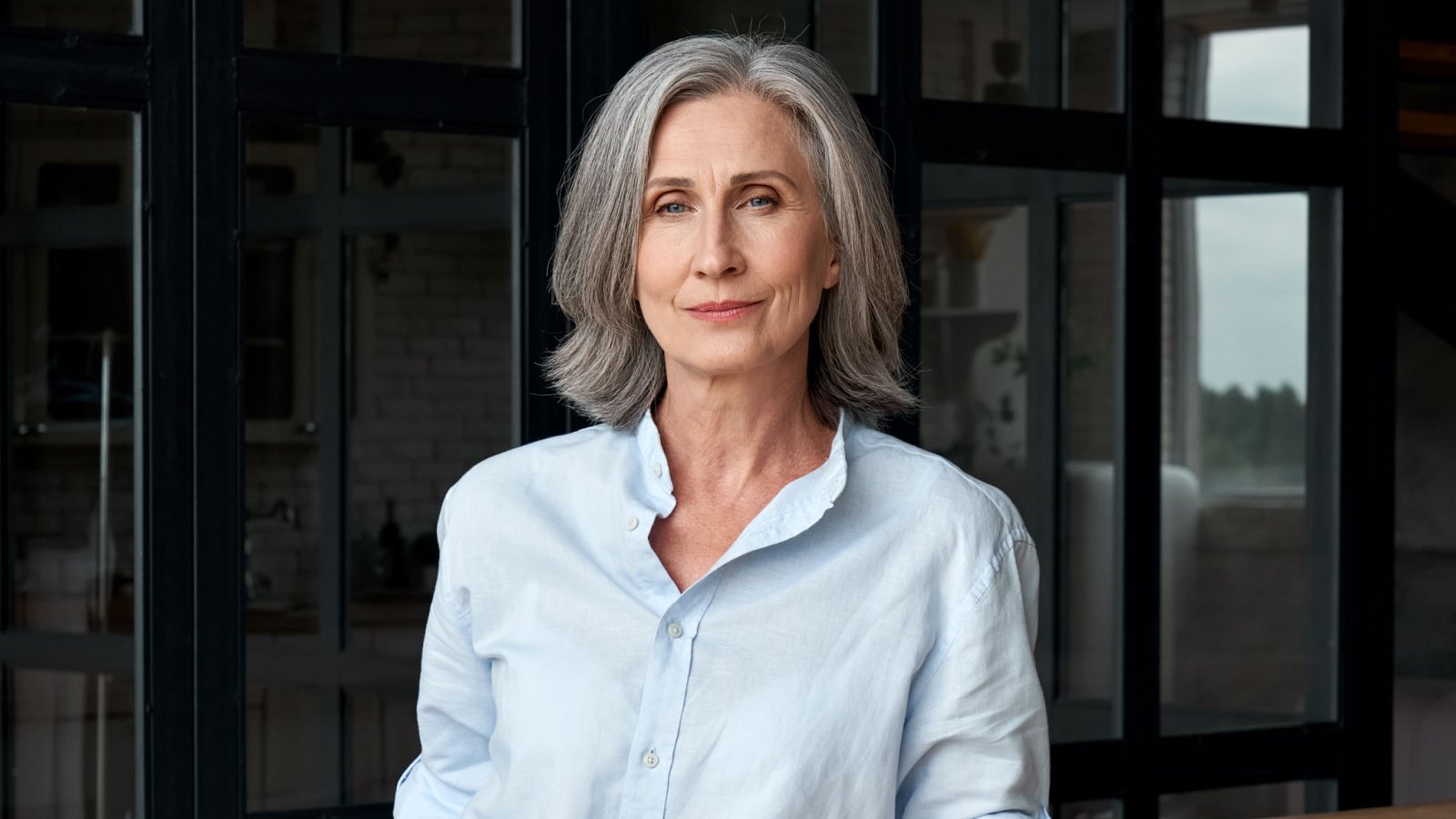As Americans age, they uncover a series of transformative realizations that shape their approach to daily living and long-term planning. From the intricate balance of health and happiness to the prudent management of finances, each decade unravels new truths. Expert studies and surveys have documented these shifts, reflecting a broad spectrum of experiences that resonate deeply with those navigating their later years. These revelations are not merely personal anecdotes; they are echoed by statistical data and research, illustrating common journeys shared across the populace.
Value of Sleep

Sleep becomes a cherished commodity as you age. A National Sleep Foundation study highlights that adults over 50 often require more time to fall asleep. This phase of life turns many into zealous guardians of their nightly rituals.
Importance of Saving Early

Early financial planning secures comfort later on. According to a survey by the Economic Policy Institute, the median retirement savings for Americans 50 and older is distressingly low. Starting young allows compound interest to weave its magic, enhancing retirement nest eggs.
Health is Wealth

Chronic conditions are less daunting when preemptively managed. Data shows that over 60% of adults in the U.S. aged 65 and older have at least two chronic diseases. Regular exercise and a balanced diet become non-negotiable to sustain vitality.
Quality Over Quantity

As years pass, the allure of quality in possessions and relationships intensifies. Consumer Reports suggests that durable goods not only offer better longevity but also improve life’s quality. This principle applies equally to forming deep and meaningful connections.
Flexibility in Career

Career paths are rarely linear in the modern economy. A study by LinkedIn reveals that individuals now average five career changes in a lifetime. Adapting skills and embracing change are crucial for long-term career satisfaction.
Importance of Voting

Political engagement shapes more than just election outcomes. Historical data underscores that older voters influence policies more significantly due to higher voting rates. Realizing this power, many embrace their civic duty with renewed vigor as they age.
Technology is Essential

Staying updated with technology isn’t just for the young. Pew Research Center reports a significant increase in internet and smartphone usage among those over 65. This connectivity is essential for everything from managing health records to staying in touch with family.
Lifetime Learning

Education does not stop at graduation. The Osher Lifelong Learning Institutes, operating on many university campuses, offer classes specifically for retirees eager to expand their knowledge. This continuous learning helps keep the mind sharp and the spirit engaged.
Mental Health Matters

Understanding mental health grows in importance as one age. Anxiety and depression are not limited to the young; they affect every age group, requiring attention and care. Open discussions about mental health have become more prevalent, reflecting a broader societal awareness.
Patience Is a Virtue

Life teaches that haste often leads to less satisfying results. Experiences accumulate, showing that a patient approach often resolves situations more effectively. This wisdom is typically hard-earned and deeply cherished in later years.
Subtlety of Happiness

Happiness is found in moments, not monumental achievements. Researchers suggest that as people age, their happiness is less about thrill and more about contentment. This subtle shift redefines joy from exhilarating peaks to peaceful plateaus.
Appreciation of Nature

The benefits of nature become more apparent with age. Studies indicate that regular exposure to green spaces can reduce stress and improve physical health. Many find solace and rejuvenation in the simple act of being outdoors.
Simplifying life

There’s beauty in simplification. The trend towards minimalism among older adults is often a response to the overwhelming nature of modern life. Clearing space—physically and mentally—makes room for what truly matters.
Legacy and Memory

The concept of legacy takes on new meaning. Whether it’s through storytelling, family traditions, or documented histories, older individuals often focus on how they will be remembered. This reflection leads to more deliberate living and legacy-building activities.
Value of Routine

A stable routine becomes increasingly important. As bodies and minds age, the predictability of a daily schedule can provide comfort and reduce anxiety. This structure helps maintain a sense of control and effectiveness.
The Power of Adaptability

Adapting to change is crucial for thriving in later years. Whether it’s adjusting to retirement or dealing with physical limitations, flexibility in one’s expectations and actions is key. This adaptability is often what separates those who age gracefully from those who struggle.
Importance of Community

A supportive community is vital for aging well. Studies show that social ties can increase longevity and improve quality of life. Engaging with local groups or online communities can provide necessary emotional and practical support.
Recognizing Limits

With age comes the recognition of one’s physical and mental limits. Acknowledging these limits can prevent injuries and mental fatigue, encouraging a healthier approach to daily activities. This awareness is crucial for maintaining overall well-being.
Nutritional Needs Change

Nutritional requirements have evolved over the decades. The National Institutes of Health notes that older adults may need more calcium, vitamin D, and B12. Tailoring diets to these changing needs helps maintain health and energy levels.
Importance of Preventive Care

Preventive healthcare becomes more critical with age. Regular check-ups can catch potential health issues early, making them easier to manage or cure. This proactive approach is often less costly and more effective than treating problems after they develop.
Letting Go

Letting go of past grievances and regrets becomes essential for mental peace. Forgiveness, whether of oneself or others, frees up emotional energy for present joys and future aspirations. This process of letting go is often seen as key to a happier, healthier old age.









Die Freispiele werden dir dann für den Pragmatic Play Spielautomaten John Hunter and the Book of Tut gutgeschrieben. Dafür sorgen gleich 4
Willkommensboni, die wir schrittweise aktivieren konnten. Der Neukundenbonus lässt das
Herz jedes Spielers höher schlagen. Obwohl das Rooster Bet Casino auch Sportwetten anbietet, gibt
es hierfür keinerlei Bonusangebote, die wir nutzen konnten. Nach der Nutzung des Rooster Bet Neukundenbonus stehen dann wöchentlich noch zwei Reload Boni
bereit. Um dir selbst Limits zu setzen, musst du lediglich dein Spielerkonto aufrufen.
250% bis zu 900€ + 600 Freispiele + 100 Gratis-Freispiele 100% bis zu 1.000€ + 50 Freispiele 100% bis zu 500€ +
150 Freispiele Freispiele sind für John Hunter and the Book
of Tut slot.
Spieler in Deutschland haben nur eine begrenzte Auswahl an Zahlungslösungen für Echtgeld-Casinos.
Bei Problemen bietet Rooster Bet Casino Live-Chat und E-Mail-Kundenservice an. Fangen Sie an zu gewinnen wie die
anderen Leute, die dies in letzter Zeit getan haben—jeden Tag haben unsere Benutzer echten Spaß und sehen echte Renditen.
References:
https://online-spielhallen.de/drip-casino-auszahlung-ihr-leitfaden-zum-reibungslosen-geldtransfer/
Feast on an exceptional array of international cuisines at this beautiful restaurant with
stunning views of Sydney. The world’s most recognised Japanese restaurant
has now arrived in the harbour city. Whether you’re after a late-night bite, international dégustation, premium buffet or classic high tea, Crown offers some of
the best places to eat in Sydney. Crown Direct provides insider access to the best rates and deals across Crown Hotels.
Crown is home to an array of top restaurants including
Nobu, a’Mare and Woodcut. Academic researchers have suggested that while the casino is
initially not licensed to offer poker machines, it will inevitably gain a licence in future years.
It offers spectacular views of the harbour and is within walking distance of the CBD and
Darling Harbour. Crown’s 24/7 concierge team curates bespoke Sydney experiences — from yacht rentals and
fine dining bookings to helicopter tours and private art
gallery access. Each venue offers stunning harbour views, signature drinks, and DJ sets into the night.
References:
https://blackcoin.co/best-new-online-casinos-to-play-for-real-money-in-2025/
Advancing in the VIP loyalty program unlocks faster point accumulation, improved
conversion rates, exclusive bonuses, and priority support. This recurring
offer rewards active play and boosts retention, giving value back to regular players.
You can choose between traditional deposit bonuses or their unique
cashback insurance option. This means your first deposit
gets quadrupled instantly, giving you significantly more playing power from day one.
The minimum deposit amount is $20 across most payment methods, with various options including credit cards, e-wallets, and cryptocurrencies.
First, visit the casino’s official website using your
mobile browser and tap the “Download APK” button typically found on the homepage.
Wire transfers typically process within 3-5 business
days, while Bitcoin withdrawals complete much faster—often within 24 hours.
Insufficient physical activity is a consistent risk factor for
insomnia and other sleep problems. To make this area your area of
rest, don’t bring work into bed or watch TV there.
Some are natural “early birds,” while others are “night owls”.
References:
https://blackcoin.co/casino-crypto-first-online-casino-review/
online blackjack paypal
References:
rsh-recruitment.nl
online casinos that accept paypal
References:
http://www.advertiseajob.co.uk